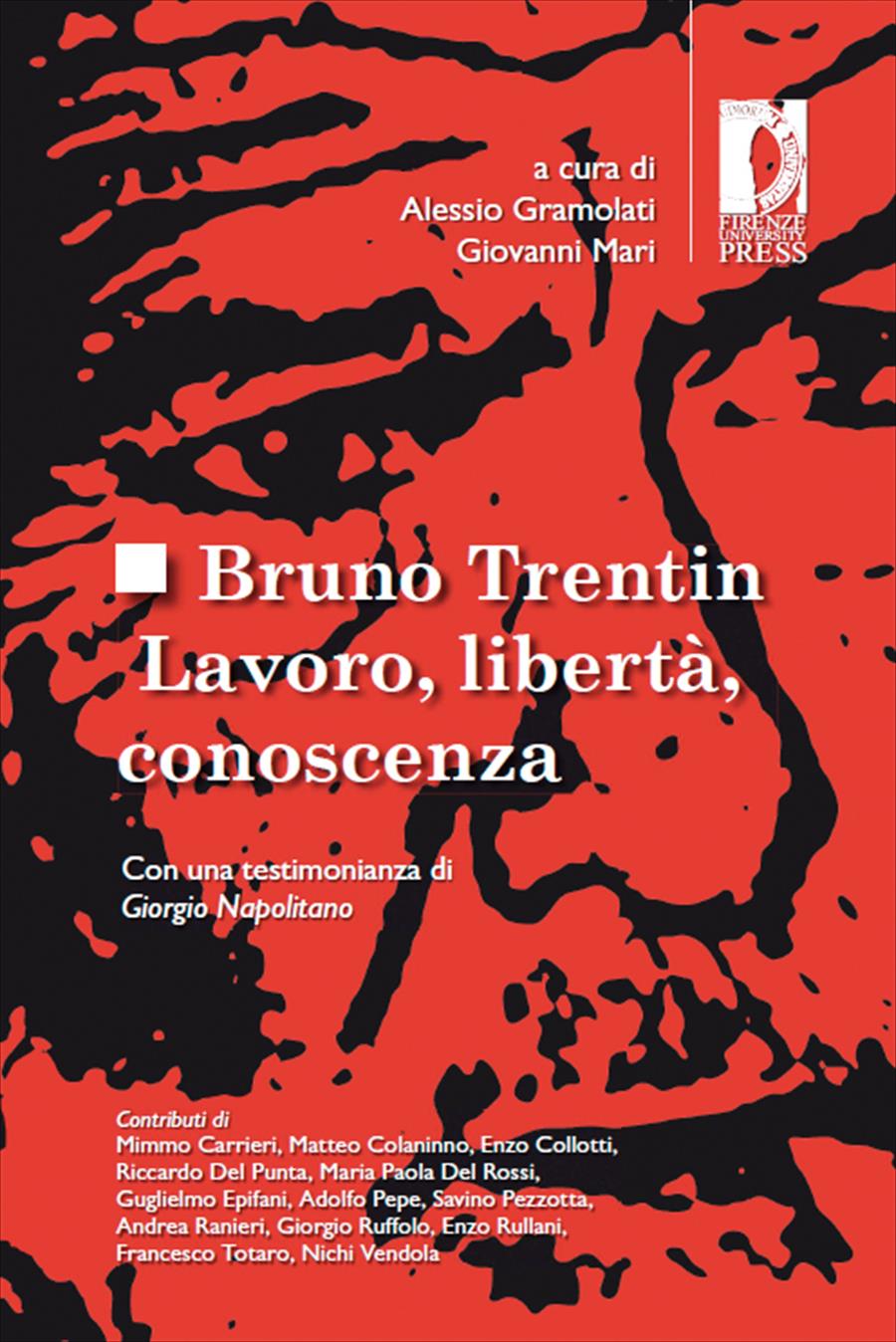Bruno Trentin. Lavoro, libertà, conoscenza
- A cura di:
- Alessio Gramolati,
- Giovanni Mari,
Bruno Trentin. Lavoro, libertà, conoscenza prende in esame la figura e l'opera di Bruno Trentin (1926-2007), la sua azione di dirigente sindacale e di uomo politico, i suoi numerosi scritti nel quadro della storia dell'Italia repubblicana e delle trasformazioni indotte dai processi di globalizzazione.
Da questa riflessione, condotta da punti di vista disciplinari e sensibilità politico-culturali differenti, fuoriescono con nettezza il significato e l'importanza del tutto particolari rivestiti da Bruno Trentin nella pratica e nell'analisi teorica delle lotte del lavoro e dell'approfondimento dei suoi problemi. Un contributo storico, ricco di proposte, intuizioni e riflessioni capaci di interpretare gli accadimenti ed i loro possibili sbocchi sindacali e politici in un progetto di accrescimento della libertà e del ruolo sociale e culturale del lavoro in maniera eccezionalmente innovativa e anticipatrice.
- Parole chiave:
- Politica,
- Sindacato,
- Bruno Trentin,
- DOI: 10.36253/978-88-8453-519-1
- Collana: Studi e saggi
- Comitato scientifico: Consiglio Editoriale FUP 2007-2010
- Lingua: Italiano
- Argomento: Filosofia politica Sociologia
CGIL, Confederazione Generale Italiana del Lavoro, Italy
University of Florence, Italy - ORCID: 0000-0001-6045-968X
Giovanni Mari è professore ordinario di Storia della Filosofia presso la Facoltà di Scienze della Formazione dell'Università di Firenze; è stato Preside della stessa Facoltà (2003-2006), attualmente è Presidente della Firenze University Press. Nel 1988 ha fondato la rivista «Iride. Filosofia e discussione pubblica», il Mulino, e nel 2009 la rivista internazionale «Iris. European Journal of Philosophy and Public Debate», Firenze University Press. Tra le principali pubblicazioni: Eternità e tempo nell'opera storica, Roma-Bari 1997; Postmoderno, democrazia, storia, Pisa 1998 (trad. ingl., Aurora, Colorado, USA 2006); La filosofia e la società della conoscenza, Pisa 2005. Tra gli articoli: Diritto alla libertà del lavoro, «Iride», 36, 2002; L'ozio come libertà del lavoro, «Iride», 48, 2006; Il lavoro dopo la "fine del lavoro", «Iride», 54, 2008.
- Anno di pubblicazione: 2010
- Pagine: 184
- eISBN: 978-88-8453-519-1
- Licenza d'uso: CC BY-ND 3.0 IT
- © 2010 Author(s)
- Anno di pubblicazione: 2010
- eISBN: 978-88-9273-711-2
- Licenza d'uso: CC BY-ND 3.0 IT
- © 2010 Author(s)
- Anno di pubblicazione: 2010
- Pagine: 184
- ISBN: 978-88-8453-510-8
- Licenza d'uso: CC BY-ND 3.0 IT
- © 2010 Author(s)
Informazioni bibliografiche
Titolo del libro
Bruno Trentin. Lavoro, libertà, conoscenza
Curatori
Alessio Gramolati, Giovanni Mari
Opera sottoposta a peer review
Numero di pagine
184
Anno di pubblicazione
2010
Copyright
© 2010 Author(s)
Licenza d'uso
Licenza dei metadati
Editore
Firenze University Press
DOI
10.36253/978-88-8453-519-1
ISBN Print
978-88-8453-510-8
eISBN (pdf)
978-88-8453-519-1
eISBN (xml)
978-88-9273-711-2
Collana
Studi e saggi
ISSN della collana
2704-6478
e-ISSN della collana
2704-5919
News ed Eventi
Presentazione del volume "Bruno Trentin. Lavoro, libertà, conoscenza"
- 26/02/2010 |
- Circolo Vie Nuove V.le Giannotti 15 Firenze






